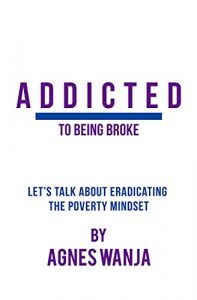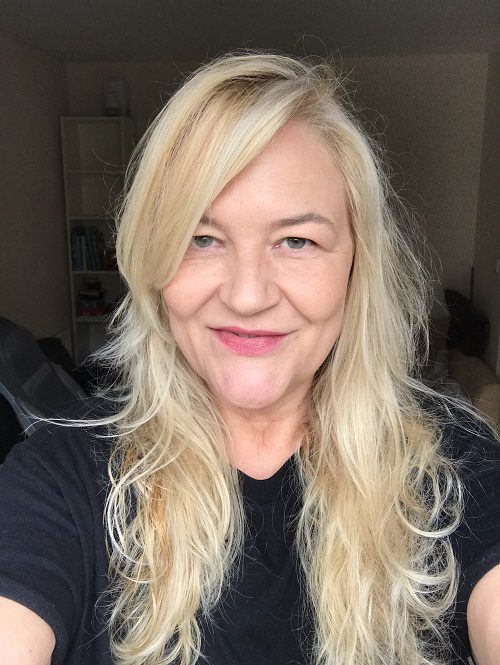Poverty mindset: are you addicted to being broke? Let’s fix it
Do you find yourself consistently failing to achieve what you feel you should? It could be your mindset
What happens when our mindset becomes trapped in a cycle of self-sabotage and negativity, particularly in the context of financial success? Could you be ‘addicted’ to being broke, and not know it? Poverty mindset – or ‘scarcity mindset’ as it’s also called, is a real thing, and it could be tripping you up.
The power of the mind is extraordinary. It has the ability to shape our lives, determine our actions, and influence our destinies. But what happens when your own subconscious mind is working against you?
So what exactly is ‘poverty mindset’?
It’s not always about money – it’s also called scarcity mindset, and it’s about failing to achieve what you should, essentially. It’s a psychological state characterised by beliefs and thought patterns that perpetuate both financial struggle and self-sabotage.
It can often stem from early childhood experiences, hard times growing up, or social position and societal conditioning. This mindset can manifest as a lack of self-worth, unconscious fear of success, and a subconscious familiarity/comfort with financial or personal struggle.
…this mindset can trigger low self-worth, inability to succeed, and a belief that financial struggle is the norm
Agnes Wanja is a renowned coach and author of the bestseller Addicted to Being Broke. Her remarkable journey from financial struggle to success is not just inspiring. It offers profound insight into the challenges of the poverty mindset and how it can be overcome.
“Poverty mindset to me is a way of thinking which, over time, becomes a belief that you don’t have enough money and you never will,” she says. It binds individuals to a cycle of self-sabotage. And this scarcity mindset can trigger low self-worth, inability to succeed, and a belief that financial struggle is the norm.
“Operating from this kind of mindset makes it difficult to even think of ways you can begin to make more money, or succeed,” she explains.
Breaking free from the shackles of self-doubt
 Wanja doesn’t just talk the talk; her book came about after she made a conscious decision to change her own mindset.
Wanja doesn’t just talk the talk; her book came about after she made a conscious decision to change her own mindset.
“This book was born out of my struggle and the stress of always being broke. I realised that the change had to start with me. I was raising two children, and although I received financial assistance, there had to be a change in order to break the cycle and allow my children to have a different relationship with money. It would be difficult to help them without helping myself understand how it all works and change my ways.
This book was born out of my struggle and the stress of always being broke. I realised that the change had to start with me
“First thing was to admit I was struggling, I did not really understand much about money, and I had to make a change. I was in a place in my life where I was fed-up! Fed-up of constantly counting coins and still not having enough. I realise that it was my relationship with money, and other habits, that were causing me to struggle.”
Help your children get a step up on the property ladder
It’s not just about money though

Agnes Wanja
Wanja acknowledges that poverty mindset is perhaps a misnomer. “It was only after I started writing the book that I found out there were other definitions for ‘poverty mindset’,” she explains. It can be about achieving goals, or success in other fields. But her approach is much the same.
“Poverty on its own has its own meaning as sometimes out of one’s control. When linked with mindset it opens a new window of one’s control or choice. Recognizing the mindset is the first step,” Agnes explains. You have to acknowledge it’s there and it’s holding you back. Replace negative thoughts with positive ones. Remind yourself daily of your worth and potential.
She also highlights the importance of your circle of influence. “Surround yourself with people who believe in your success and encourage your growth,” Agnes suggests. A supportive network can be transformative.
The power of personal growth
Agnes Wanja’s book serves as a roadmap for those looking to escape the confines of the poverty mindset.
“I had my children at a very young age and at the time I had the option to stay at home and be on state benefit, or find a way to continuously add value to myself and become valuable to the marketplace,” she says. “I chose the latter, and although I have not arrived at the major goals I’ve set myself yet, I am on the journey and glad I chose this path.
“On my journey I realised that investing in myself will allow me to be in a better earning position. In addition to this I found out about multiple streams of income. I am now in a position where I am earning more than I have before. And so glad I took the steps I did to allow me to continuously keep learning and earning. I could have been earning the same as I did three, four, five years ago!
“My mission now is to help as many people as I can overcome self-limiting beliefs, build confidence, and work out their next right move.”
Top tips for changing your mindset
• Recognise and acknowledge your mindset. Understand that it’s holding you back.
• Understand your own financial journey. Are you drowning, floating, or swimming? If you are not happy, change it!
• As an idea, a part-time remote job could be a way to earn more. Jooble, for example, has got a bunch of options that might catch your eye.
• Understand your spending habits (they can make or break your bank balance).
• Earn more than you need. Sounds simple, but so many people earn just enough or even less than they need.
• Visualise your success. Create a clear mental picture of the life you desire.
• Take action! Break down your goals into manageable steps and take consistent action toward them. This will build confidence and momentum.
• Consider more than one source of income. At least one passive income, and hobbies can pay too.
• Better money habits are better for your mental health.
• Positive affirmations. Repeatedly remind yourself of your worth and potential.
• It’s all a journey and continuous growth and understanding is the key.

Sam is Silver’s founder and editor-in-chief. She’s largely responsible for organising all the things, but still finds time to do the odd bit of writing. Not enough though. Send help.



I identify with this, self sabotaging my whole life. Yes, deffo stems from my childhood